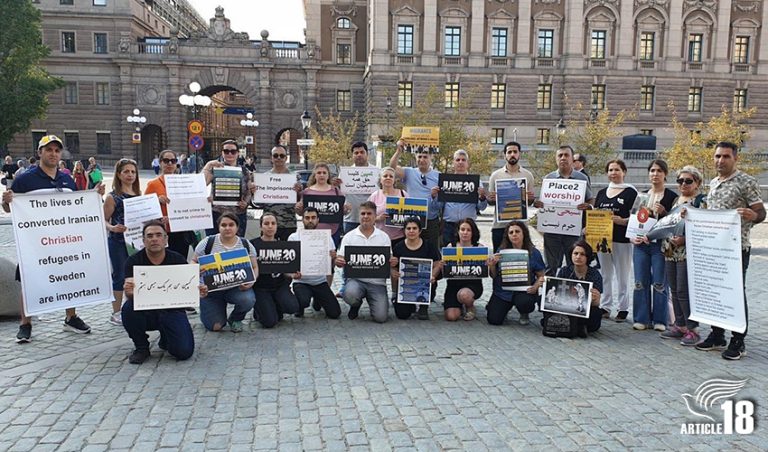
The European Court of Justice in Luxembourg (Twitter @EUCourtPress)
EU countries have been told they cannot automatically reject asylum claims based on professed conversions to Christianity, even if the conversion took place after the individual left their country of origin.
The new ruling by the European Court of Justice (ECJ), pronounced yesterday, is based on the case of an Iranian man, “JF”, who claimed asylum based on his professed conversion to Christianity in Austria, which he argued would put him at risk should he return to Iran.
The Austrian authorities accepted JF “demonstrated credibly” his conversion was genuine, “actively practised his faith”, and therefore “risked being exposed to individual persecution in the event that he returned to Iran”.
However, although he was granted “subsidiary protection” and a “fixed-period residence permit”, the Austrian authorities refused to afford JF full refugee status.
JF appealed successfully against the ruling, back in September 2020, but his appeal was challenged by the Austrian authorities, leading ultimately to yesterday’s judgment.
#ECJ: An #asylum application based on a religious conversion taking place after departure from a person’s country of origin may not be rejected automatically as abuse 👉 https://t.co/ATb3CgbPxg
— EU Court of Justice (@EUCourtPress) February 29, 2024
The Austrian authorities argued that such individuals should not “normally” be granted protection if the alleged conversion took place after leaving their country of origin. Such cases could lead to individuals “abusing” the asylum system, they argued, by “manufacturing” their claims.
But the ECJ ruled that the location of a conversion was unimportant. The only issue of importance, the court ruled, was whether the claimant met the conditions in the Geneva Convention for refugee protection – namely “a well-founded fear of persecution” should they be deported.
The Geneva Convention was described in the judgment as the “cornerstone” of refugee legislation, and therefore all asylum claims “must be interpreted in a manner consistent with that convention”.
The Geneva Convention “does not provide for any restriction to the effect that the well-founded fear of being persecuted … may be based on activities which the applicant has engaged in since he or she left the country of origin”, the ECJ said.
The court added that there needed to be a “uniform interpretation and application” of asylum law across the EU, and the only consideration should be whether or not the individual has a well-founded fear of persecution should they be returned.
Each member state is called on “to carry out a complete examination of all the circumstances specific to the applicant’s individual case, which precludes any kind of automaticity,” the ECJ said.
The court added that even were the claimant found to have converted “solely or mainly” to help their asylum claim, EU member states must still judge whether the individual would face a “probable risk of persecution” if returned to their country of origin.
Even if an individual’s intention was to abuse the system, this would be merely “one factor to be taken into account” during a “complete examination” of all circumstances of the case, the ECJ ruled.



0 Comments
Trackbacks/Pingbacks